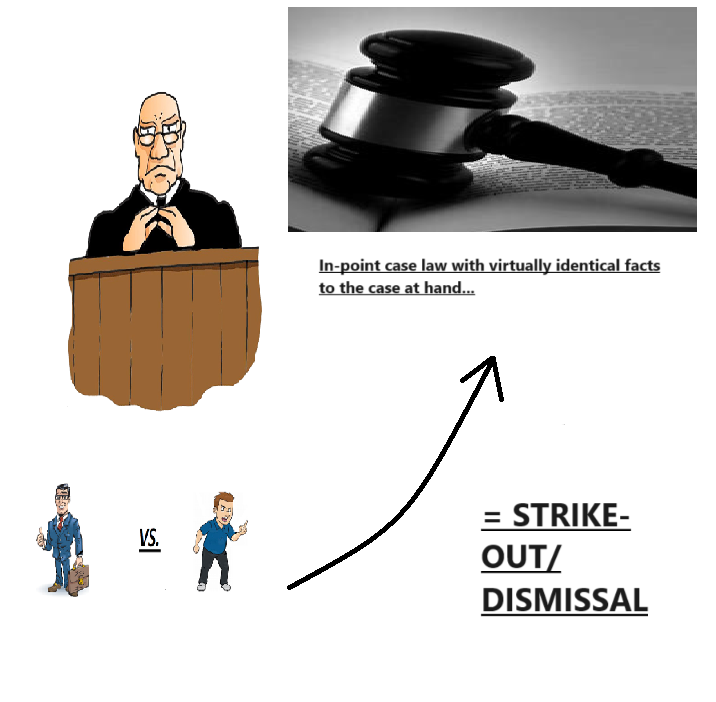Mccallum v Mason [1955] ScotCS CSIH - 8 19 Oct 1955
Citation:Mccallum v Mason [1955] ScotCS CSIH - 8 19 Oct 1955
Rule of thumb 1: If goods break/explode and cause an injury, is this a commercial action or a personal injury action? This should be raised as a personal injury action based on product liability/Consumer Protection Act, rather than a commercial action based on the Sale of Goods Act.
Rule of thumb 2: When a case should be struck out/ dismissed? Where there is an in-point case.
Judgment:
Where goods have caused massive destruction and created a danger to people and property then this is to be raised as a product liability personal injury case, rather than a commercial action. The facts of this case were that coal was supplied and this bag of coal then exploded somehow. The Court rejected the arguments that a ‘sale and supply of goods’ commercial action based the ‘goods conforming to description’ was the proper action to raise this.
‘The defender first argued the broad proposition that section 14 of the Sale of Goods Act can only come into operation where the goods supplied correspond with description in the sense of section 13. This is essentially the same proposition as was rejected by the Court of Appeal in England in Wilson v. Rickett Cockerell & Co., [1954] 1 Q. B. 598, especially per Denning, L.J., at p. 607. In arriving at their decision, however, the Court disapproved the reasoning in Duke v. Jackson, 1921 S. C. 362. If the latter case affirmed the proposition now contended for, I should be bound by its authority. The case related to damage caused by the explosion of a detonator which had been contained in a bag of coal purchased by the pursuer from the defender. The action was based on breach of the implied condition of fitness in section 14 (1) of the Act. It was dismissed as irrelevant by the Lord Ordinary, whose judgment was affirmed in the Inner House. The Lord Ordinary's ground of judgment was that on the pursuer's averments the whole of the coal, or practically the whole of it, was reasonably fit. The Lord Justice-Clerk merely agreed in the result arrived at by the Lord Ordinary. Any difficulty the case may occasion arises from the fact that Lord Dundas and Lord Ormidale drew a line of distinction between the coal and detonator, treating the former as the sole subject of sale and supply and the latter as a foreign substance which had found its way into the bag. This way of regarding the case no doubt arose from the shape of the pursuer's record—for he had commenced by averring that the defender sold and supplied him with a bag of coal, and he then proceeded to explain the explosion as having been caused by a detonator contained in the bag of coal supplied to him. I do not find in the judgments any discussion of the meaning of section 14, or of its crucial words "goods supplied under a contract of sale." None of the learned Judges says that the phrase means goods which correspond with description, nor is there any indication that they regarded the goods supplied in that case as not being conform to description. I cannot find that such circumstances enter into the ratio of the judgment, which I therefore think is confined to the particular averment in that case. If that is correct, then I am free to interpret the phrase "goods supplied under a contract of sale." I respectfully adopt Denning, L.J.'s, opinion in Wilson's case that the phrase means goods delivered in purported pursuance of the contract. Supply under a contract has, I think, a wider and more elastic connotation than supply in terms of a contract. The section, both in its general rule and in its exceptions, is therefore, in my opinion, capable of application—if the facts permit—whether or not the goods supplied correspond with description. Accordingly I hold that the broad proposition contended for by the defender is erroneous’, Lord Walker

Warning: This is not professional legal advice. This is not professional legal education advice. Please obtain professional guidance before embarking on any legal course of action. This is just an interpretation of a Judgment by persons of legal insight & varying levels of legal specialism, experience & expertise. Please read the Judgment yourself and form your own interpretation of it with professional assistance.

